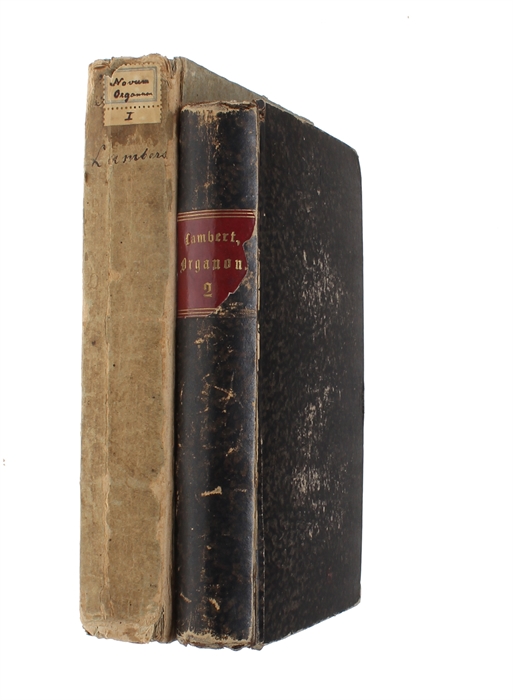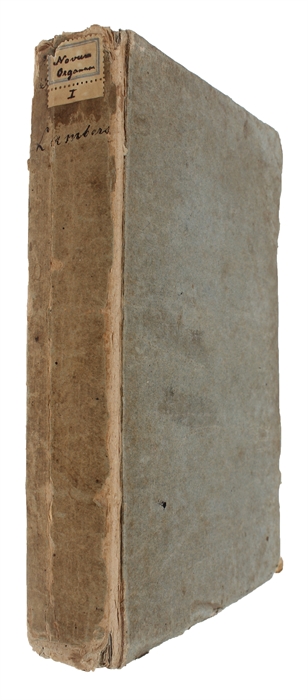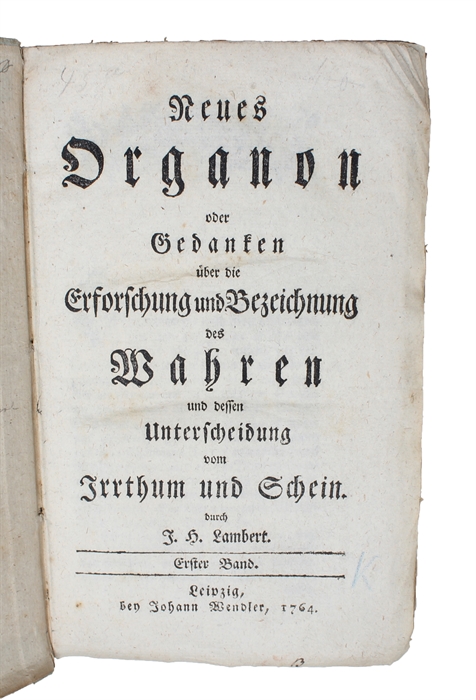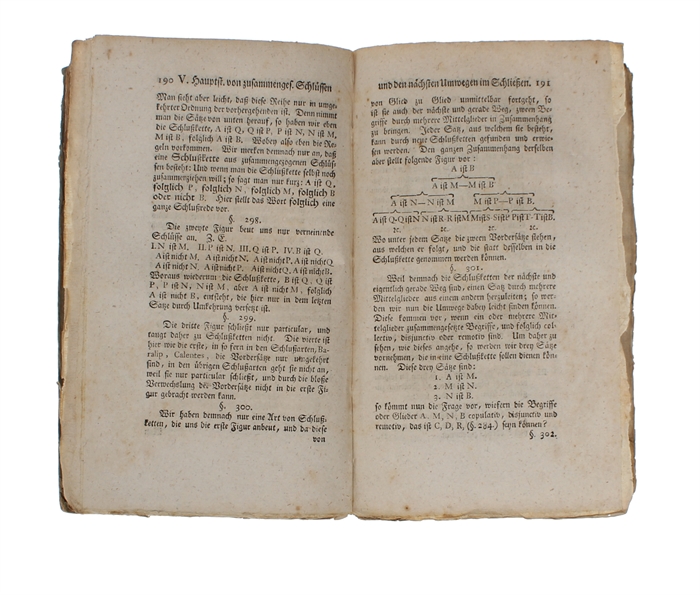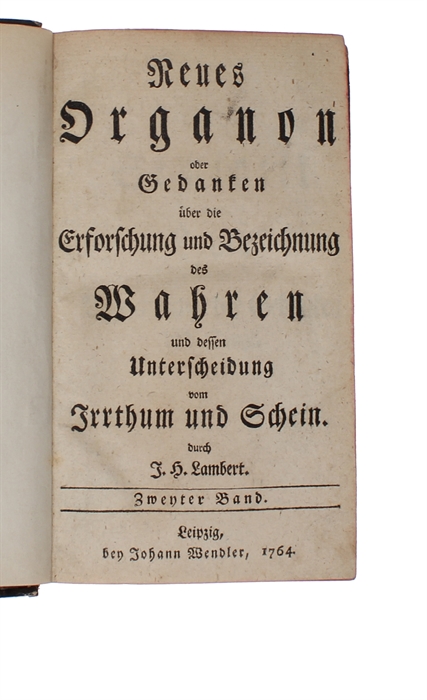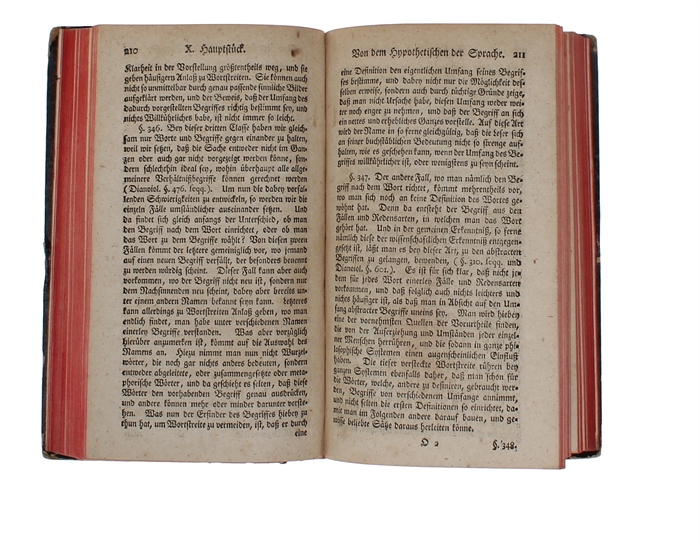COINING "PHENOMENOLOGY"
LAMBERT, J.H.
Neues Organon oder Gedanken über die Erforschung und Bezeichnung des Wahren und dessen Unterscheidung vom Irrtum und Schein. 2 Bde.
Leipzig, Johann Wendler, 1764.
8vo. Non-uniformely bound. Vol 1: Completely uncut in the original cardboard-binding. Some wear to capitals and hinges. Internally a bit of minor occasional brownspotting. (18), 592 pp. Vol 2: 19th century marbled paper-binding with red gilt title-label to spine. Wear to extremities. Only light occasional brownspotting. (2), 435, (1).
The very rare first edition of Lambert's seminal main philosophical work, the work which coined the term "phenomenology". "Neues Organon" is a work of breakthrough that came to, directly or indirectly, influence almost all later philosophy, also that of Kant.
Today, Johann Heinrich Lambert arguably mostly remembered as one of the greatest mathematicians and logicians of his time. However, a true polymath, he also played a dominant role in the development of 18th century philosophy, primarily with his philosophical magnum opus "Neues Organon", in which he set out to provide a better methodology for philosophy, with the aid of mathematics. As such, he is considered a path-breaker of Rationalism and one of the most important predecessors of Kant, who knew him well and admired him greatly; the two corresponded frequently.
"Kant himself recognized Lambert as a philosopher of the highest qualities; and he expected much from his critical attitude. He had drafted a dedication of the "Critique of Pure Reason" to Lambert, but Lambert's untimely death prevented its inclusion.
Lambert's place in the history of philosophy, however, should not be seen only in its relation to Kant. The genesis of his philosophical ideas dates from a time when Kant's major works had yet to be conceived. It was the philosophical doctrines of Leibniz, Christian Wolff, and Locke that exerted the more important influence - insofar as one can speak of influence with a self-taught and wayward man such as Lambert... The two main aspects of Lambert's philosophy, the analytic and the constructive were both strongly shaped by mathematical notions; hence logic played an important part in his philosophical writing. Following Leibnitz' ideas, Lambert early tried to create an "ars characteristic conbinatoria", or a logical or conceptual calculus. He investigated the conditions to which scientific knowledge must be subjected if it is to enjoy the same degree of exactness and evidence as mathematical knowledge... In "Neues Organon" he next developed the idea of a characteristic language of symbols to avoid ambiguities of everyday language; and finally, in the most original part of his work called ""Phänomenologie," he discussed appearance and gave rules for distinguishing false (or subjective) appearance from a true (or objective) one that is not susceptible to sensory illusions." (D.S.B. VII:597).
Order-nr.: 41480

